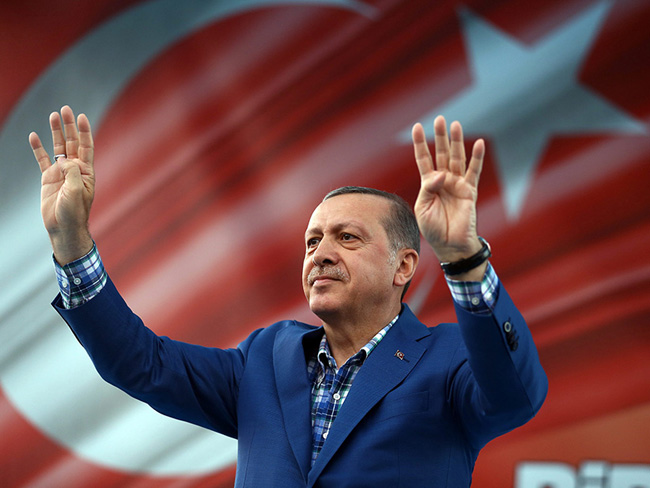News Time
The Turkish Republic was a well-known state born after the First World War. Its founder, Kamal Ataturk, loved the peace at home, the mantra of peace in the world, which led to the advent of foreign adventures. The areas whose administrative affairs were once in the hands of Istanbul and later became backward and alien to the Turkish people, today, Turkey is following in the footsteps of the ancestors of the Ottoman Ottoman Caliphate, sending its troops to Libya, Syria, Iraq and even Qatar. Military bases have also been established in Qatar, Somalia and Sudan.
This new Turkish military campaign is part of a strategy by which Turkey will play an important role in matters related to the Middle East. And Turkey’s strategy has come to the fore in recent days when the United States has faced a backlash ideologically and practically in the Middle East. In January, the Turkish parliament approved sending troops to assist the UN-recognized Government of the National Accord against General Khalifa Haftar in Libya. This is the first time Turkish forces have entered Libya after the expulsion of the Ottoman Caliphate from the region in 1912.
The latest attack by Turkish troops in the Syrian province of Aleppo, which clashes with President Bashar al-Assad’s forces, it is only part of a series of operations in northern Syria, but the attack has brought Turkey directly against the Syrian state, unlike the Kurdish fighters. But the same Kurds against whom Turkey is operating in Syria, Turkish forces in Iraq and Qatar reached their aid, which shows that Turkey’s position is different from that of different states and shows a particular agenda. Although GNA lacks allies in Libya, Qatar and Turkey offer help to Saudi Arabia and the United Arab Emirates in responding to anti-Islam policies. And if this clash on one hand caused the exclusion of Qatar from the states of the Gulf Corporation Council on the other hand, Turkey had an invitation to establish its base in Qatar.
Inviting Turkish troops to the Bishkek base in Iraq in 2016 was the result of various power struggles seeking power within the Iraqi state under which, Kurdish regional leader Masoud Barzani is expanding his alliance with the Turks to take advantage of Iran’s influence over the Shiite majority and Baghdadi government. Whatever the reasons for Turkey’s foreign campaigns, Turkish President Recep Tayyip Erdogan’s government succeeded in Russian action in Ukraine and Syria and for the sake of immunity, it is calculated that establishing your vast powers on the earth gives you a geographical political priority and faces fewer obstacles. In the past, Turkey was very careful about foreign adventures as it threatened conflicts with sovereign states. But in many regions of today’s Middle East, many states are either failing or failing. Authorization continues in Libya, Syria and Iraq, and the attackers may have very limited goals, but they are still effective.
Regardless of Turkey’s National Action Party (MHP) leader Develet Basilei’s demand for Damascus, Turkey has never been willing to take over any state. It has strictly limited the goals of all its attacks. Its sole purpose is to put you in a better and defensive position in the wider conflict. France, which supports Libya’s General Weekly (khalifa haftar), criticized Turkey’s intervention in Tripoli, but such criticism in today’s Middle East, is meaningless. Any state can stand to compete with a superpower that does not guarantee peace.
Turkey’s enemies may seem far beyond their limits, but enemies do not mean how powerful they have been in the past. The states are weak; the powers are aligned against each other. Enemies may dislike Turkey’s operations in the region, but the fact is now everyone is in a new tactic. If you want to be at a particular region, part of the conflict or the energy and resource distribution table, you have to feel your power and presence. You will then be offered a chair.




